3 October 2014 Gardening
I jog around the park I still have arthritis in my left knee, but I manage to get round the park. A busy day off to the Post Office and the Coop, sweep the path at the side of the house. .
Mary’s back much better today, breakfast weight down rabbit for tea and her back pain is still there but decreasing.
Obituary:
Mary Cadogan – obituary
Mary Cadogan was a writer on children’s literature who developed her enthusiasm after reading The Magnet and Gem as a child

Mary Cadogan (right) with Una Hamilton-Wright, the niece of Frank Richards
7:09PM BST 02 Oct 2014
Mary Cadogan , who has died aged 86, was a prolific writer on all aspects of children’s literature and a respected authority on the subject.
She first came to prominence with the publication of You’re a Brick, Angela (1976, co-written with Patricia Craig) when in her mid-forties. This was probably the first serious examination of girls’ fiction to be published. Until then, this area of literature had been virtually ignored.
The daughter of a police officer, she was born Mary Summersby on May 30 1928 and brought up at Bromley in Kent, where she would live all her life. A voracious reader from an early age, she regularly borrowed her older brother’s boys’ weeklies The Magnet and Gem. Like many girls of her time, she fell in love with The Magnet’s Harry Wharton, captain of the Greyfriars’ remove, and other heroes created by Frank Richards, the nom de plume of Charles Hamilton. After school, she worked for the BBC, where she met Patricia Craig , later a respected author and anthologist in her own right.
For a time Mary Cadogan worked as secretary for the welfare committee of the Infantile Paralysis Fellowship (she had considered social work as a career). She was a particular admirer of Richmal Crompton, creator of the Just William series, who had suffered from polio and was a staunch supporter of the charity. One of Mary’s undying regrets was that she found herself too shy to question Crompton about her creation when she visited the office.
Her first substantial work as a sole author was Richmal Crompton: The Woman Behind William, published in 1986. It is an affectionate reflection on a woman who overcame illness and physical disability to become one of the most loved authors of her time and beyond, and was supplemented by The William Companion (1990, with David Schutte) and Just William Through the Ages (1994).
Mary Cadogan’s next major work was Frank Richards: The Chap Behind the Chums (1988), which brought to light much that had not been revealed in Richards’s autobiography. During her research for this book, she became great friends with Una Hamilton-Wright ( Richards’s niece), with whom she corresponded and met frequently until Una’s death in 2009.

Mary Cadogan’s biography of Franks Richards
Mary Cadogan also wrote And Then Their Hearts Stood Still: An Exuberant Look at Romantic Fiction Past and Present (1994); her other collaborations with Patricia Craig include Women and Children First: The Fiction of Two World Wars (1978) and The Lady Investigates: Women Detectives and Spies in Fiction (1986).
An assiduous supporter of all aspects of children’s literature, Mary Cadogan edited the monthly (later quarterly) Collectors’ Digest (the Old Boys’ Book Club journal for those interested in all aspects of children’s literature) and was a vice-president of the Friars’ Club, for Frank Richards enthusiasts. She twice served as chairman of the Old Boys’ Book Club.
In the mid-1950s Mary Cadogan met the Indian philosopher Juddi Krishnamurti, who was to shape many of her personal beliefs. Although possessed of a deep spiritual faith, she was firmly of Krishnamurti’s opinion that truth cannot be found through organisations or creeds. Acceptance of all people was her keystone: disagree, perhaps, but always treat everyone with the same respect.
She received an honorary DLitt from the University of Lancaster for her “outstanding contribution to the field of British Children’s Literature” and a Lifetime Achievement Award from the Children’s Books History Society
She is survived by her husband of more than 60 years, Alex Cadogan, an engineer, and their daughter .
Mary Cadogan, born May 30 1928, died September 29 2014
Guardian:
 David Cameron at the Conservative party conference in Birmingham. Photograph: Facundo Arrizabalaga/EPA
David Cameron at the Conservative party conference in Birmingham. Photograph: Facundo Arrizabalaga/EPA
We are very confused following Mr Cameron’s announcement promising “named GPs” and access to a GP seven days a week (Seven day surgeries, 30 September). This government has done nothing but criticise general practice for being unable to meet the needs of patients and yet has reduced the proportion of total NHS expenditure directed at general practice from more than 11% down to just over 8%. GPs have been taken out of their surgeries to undertake commissioning and management roles and all GPs now spend substantial amounts of time on supporting their clinical commissioning groups rather than seeing their patients.
Mr Cameron is proposing that another £400m will deliver his proposals. If £50m serves only nine areas how will £400m cover 211 CCGs? Who does Mr Cameron think is going to see the patients seven days a week from 8am to 8pm? Overworked doctors make mistakes. We’ve warned successive governments of impending recruitment problems; now we’ve reached crisis point – why choose to go into a career when the level of criticism from ministers is unprecedented? GP practices are not only finding it impossible to replace leaving GPs but they can’t find locum doctors either. So once again, we would ask, where are the doctors going come from? This is a disingenuous and unachievable pre-election guarantee from a government disinvesting in general practice.
Dr Peter Graves Chief executive, Bedfordshire and Hertfordshire local medical committee, Dr Una Duffy Chair, Bedfordshire LMC, Dr Jeremy Cox Chair, Hertfordshire LMC
• We recently undertook a study in which we asked a sample of the population in England about their preferences for GP services. The most important factor for people was to be able to see a GP quickly. Weekend access did not seem very important to them in securing this. Of all the ways in which access to GP practices could be made more convenient, opening practices on Saturday and Sunday was the least valued, trailing far behind extended opening hours from Monday to Friday. Perhaps the extra £400m pledged over the next five years for practices to open seven days could be better spent elsewhere. The findings are in our report on GP choice evaluation, at www.piru.ac.uk/publications/piru-publications.html
Nicholas Mays Professor of health policy, Mylene Lagarde Senior lecturer in health economics, Bob Erens Senior lecturer
London School of Hygiene and Tropical Medicine
• I am sure Ed Miliband is congratulating Andy Burnham on his conference announcement to reorganise the health service should Labour win the next election (Report, 24 September). Sadly the million-plus employees of this tired political football will not share his euphoria. We are only just managing to create some sense of Andrew Lansley’s cataclysmic reorganisation, forging links with social care which, given time to mature, may bring some benefit to our most deprived patients. But now to be faced with another upheaval, I fear that the Labour party will lose countless votes (mine included), but also that health service staff will leave in greater numbers, both to go overseas and into the intellectual wasteland of retirement.
Where Miliband can find “8,000 new GPs” (Report, 24 September) is a mystery to those of us aware of the reduction in numbers of those entering training, increased emigration and numbers seeking early retirement. Those 8,000 might be needed less if calm, ordered leadership abounded, rather than constant chaotic reorganisation.
In Bridlington, we are developing innovative links between health, education, social care and voluntary organisations in an attempt to improve the lot not only for our community, but for the staff who work in this deprived location. This work arose from a staffing crisis and is having positive results already after only six months. The idea that after the next election it will be negated as remote hospitals take over community and primary care services is surely contrary to local need.
When will politicians stop acting like little princes whose ideas have to be better than anyone’s have been before, and only listen to the advice of yes-men? Instead, they could put the interests of the people first, govern with a light touch, allow systems to evolve rather than be subject to countless reformations, and allow professionals to be responsible for their professions.I would love to have a crack at reorganising the political system of this country but sadly as a doctor I realise that I would better serve the country by looking after my patients and contributing to trying to improve the health system in which I have trained and worked for 30 years.
Dr Mike Hardman
Bridlington, East Yorkshire
• More students entering medical school would have no effect on GP numbers for 10 years. Perhaps Jeremy Hunt wants specialists to retrain. On what grounds does he believe it would be prudent to encourage a shift of such proportion? If, however, he would welcome an increase numbers of immigrant physicians, he should say so.
Professor Clive Coen
School of Medicine, King’s College London
• Alan Gilvear (Letters, 1 October) tells of seeing a doctor within two hours in Spain. According to World Health Organisation figures for 2006, Spain had 368.6 GPs per 100,000 people and the UK 212.6. Could this be the reason for his speedy care?
Simon Jones
Cardiff
 A view over Manchester. ‘Greater Manchester councils have a decades-long record of working together across local authority and political boundaries.’ Photograph: Christopher Thomond
A view over Manchester. ‘Greater Manchester councils have a decades-long record of working together across local authority and political boundaries.’ Photograph: Christopher Thomond
Greater Manchester has a bigger economy than Wales or Northern Ireland yet has considerably less freedom over its strategic economic priorities (Journal, 1 October). As more powers and new ways of working are devolved to other parts of the union, this position becomes untenable. Moreover, it is clear that funding and spending decisions currently taken in Westminster are hampering our economic performance to the tune of £5bn a year. Greater Manchester councils have a decades-long record of working together across local authority and political boundaries. In recent years the Greater Manchester Combined authority, the country’s first such institution, has successfully built on this. We believe we are ideally placed to be a trailblazer for city devolution and that the combined authority – which corresponds with our area’s economic geography – is the logical level at which to do this.
We therefore call on the three main political parties to commit to devolving greater autonomy to enable our region to realise its full potential. Informed decisions around skills and training, welfare and employment, transport, health and social care should be made at a local level in order to maximise economic growth and job creation at the same time as reducing public spending. For the good of the residents of Greater Manchester, and indeed for the benefit of the national economy, this economic devolution should come before any agreement on a constitutional settlement for the UK.
Cllr Peter Smith Leader, Wigan council, Cllr Cliff Morris Leader, Bolton council, Cllr Mike Connolly Leader, Bury council, Cllr Richard Leese Leader, Manchester city council, Cllr Jim McMahon Leader, Oldham council, Cllr Richard Farnell Leader, Rochdale council, Ian Stewart City mayor, Salford, Cllr Sue Derbyshire Leader, Stockport council, Cllr Kieron Quinn Leader, Tameside council, Cllr Sean Anstee Leader, Trafford council
 A protester kneels in front of police at the Occupy Central movement protest in Hong Kong, China. Photograph: Eyepress/Sipa/Rex
A protester kneels in front of police at the Occupy Central movement protest in Hong Kong, China. Photograph: Eyepress/Sipa/Rex
Hong Kong’s current upheaval is even more “complicated” than Martin Jacques acknowledges (China is Hong Kong’s future – not its enemy, 1 October). Jacques highlights colonial Britain’s longstanding failure to introduce democracy. Fair enough. But democratisation was not, as he implies, the outcome of Beijing’s farsighted benevolence. Commitments (albeit vague) to democratise were inserted into Sino-British agreements during the 1980s, largely in response to local civil society pressure, and that pressure has grown steadily ever since.
Jacques argues that calls now for greater democracy are fuelled by resentment at an influx of wealthy mainlanders. There is some truth to this – but not enough to justify boiling down local grievances to envy spawned by a reversal in Hong Kong-mainland economic fortunes. Most Hongkongers are the children or grandchildren of refugees from Mao’s China. Mistrust of Communists has for many always been central to their local consciousness – along with an attachment to distinctive local institutions. Among those prized institutions are an independent judiciary and a free press. Jacques tells us these are as safe as ever. However, Hong Kong’s slide down the World Press Freedom Index (now level-pegging with Senegal at No 61) suggests otherwise. As for judicial independence, a Chinese government declaration this June that senior judges must be “patriotic” was not reassuring. And the central government exerts far more influence over local politics than Jacques recognises in referring to Beijing’s “hands-off approach”.
Hong Kong’s post-1997 trajectory has been more benign than many feared. But it does not follow that we should expect young Hongkongers today to fawn in gratitude and shut up about democracy. Jacques’s Olympian disregard for their aspirations, and for the distinctive local identity and culture, is profoundly condescending and unwise.
Edward Vickers
Hong Kong permanent resident and former local schoolteacher
• Martin Jacques attempts to defend China by arguing that, contrary to the west’s impression that it is an authoritarian regime, China is in fact the champion of democracy and freedom in Hong Kong. Nothing can be further from the truth. For one thing, the present proposal for electoral reform approved by Beijing puts strict controls on who gets to stand in the election. It would let Beijing claim a false veneer of legitimacy for the future leader of Hong Kong.
Resisting such a proposal is the core of the whole protest – a point obscured by Jacques. He thinks that because Hong Kong is governed under the “one country, two systems” principle and the process of democratisation starts after the handover, China represents a force of democracy. What he overlooks is the historical involvement of Britain in pushing for such an arrangement in the first place, in the negotiations leading up to the Sino-British joint declaration in the 80s. Future democratisation was the condition laid down by the British for the handover of sovereignty to China. It was not of China’s own initiative.
Christopher Cheung
Hong Kong
• As a Taiwanese-American, I wanted to say thank you for your piece (Taiwan shows growing support for Hong Kong protests, theguardian.com, 30 September). My family members and I have attended recent protests in Taiwan and the US in support of democracy on both sides of the Taiwan strait. Thank you especially for discussing Taiwan’s complicated history with more nuance and accuracy than the mainstream media usually offers. I think that it’s so important for reporters to qualify their use of the terms “one China” or “renegade province” – to highlight that these are claims by Beijing, not immutable facts written in stone.
Catherine Chou
Amherst, Massachusetts, USA
 Pro-independence Catalans rally in front of Barcelona’s town hall after an independence vote set for 9 November was halted by Spain’s constitutional court. Photograph: Matthias Oesterle/Demotix/Corbis
Pro-independence Catalans rally in front of Barcelona’s town hall after an independence vote set for 9 November was halted by Spain’s constitutional court. Photograph: Matthias Oesterle/Demotix/Corbis
Why has there been so little coverage in your paper recently over the Catalan-Spanish question? Especially over recent days, when events have moved on further to what looks like a developing major constitutional crisis within the EU. I am the grandson of a Catalan exile from the Spanish civil war and am acutely aware of the way other European nations, including the British, dealt with that problem culminating in the pact of non-intervention and essentially allowing Spain to then suffer 40 years of dictatorship.
I, like many Catalans or descendants, have been on a political journey since the democratisation of Spain. I started with optimism and the hope that true democracy had taken root. But unfortunately in the last decade I’ve witnessed a marked move to recentralise Spain and increasingly how politicians are using the Spanish constitution to enforce their agenda. The turning point was when the ruling People’s party used the constitutional tribunal to outlaw the new Catalan constitution, which had previously been voted for in a Catalan referendum and then passed by the Spanish parliament. We now have a situation where a non-referendum and non-legally binding consultation on home rule passed by the Catalan government and demanded by 80% of the Catalan people in a mass civic movement, has been overturned by the constitutional tribunal again.
European governments say this is an internal matter and it’s an acceptable position, although David Cameron has advised the Spanish to allow Catalans a say as he’s done with Scotland. However, on 9 November, if the vote is blocked, the Catalan government will be forced into calling an early plebiscitary election and, depending on the result, make a unilateral declaration of independence. The matter would then become an international one and other states could not continue sitting on the fence.
I ask the UK and its institutions (in which I include the press), beacons of democracy throughout the civilised world, not to ignore the Spanish question again and to continue to promote democracy.
Joseph A Munoz
Huntingdon, Cambridgeshire
 When someone covers their mouth with their hand it can cause difficulties for people who have difficulty hearing. Photograph: Mario Tama/Getty Images
When someone covers their mouth with their hand it can cause difficulties for people who have difficulty hearing. Photograph: Mario Tama/Getty Images
Andrew Stunell, Lib Dem MP for Hazel Grove (Letters, 29 September) is trying to blacken Jack Straw’s reputation by claiming his problem is with the niqab. I am profoundly deaf in one ear and have less than 35% hearing in the other; I wear a sophisticated hearing aid and I too have no problems with the phone, because it is held close to the ear (except for foreign accents and people who gabble). When it comes to interacting with people face to face, it’s very different. You need to see their mouth to confirm what you are hearing, otherwise you can come out with some hilarious clangers. If a person covers their mouth with their hand or a cup or behind a newspaper, it can cause difficulties. A niqab hides the mouth and muffles the voice as does a scarf worn across the face in winter. This is not a racist problem, this is a practical one.
Marie Blundell
Wigan, Lancashire
 Karl Lagerfeld (right) appears with models who stage a demonstration at the end of his collection for Chanel during Paris Fashion Week. Photograph: Gonzalo Fuentes/Reuters
Karl Lagerfeld (right) appears with models who stage a demonstration at the end of his collection for Chanel during Paris Fashion Week. Photograph: Gonzalo Fuentes/Reuters
Many clothes lovers will have found Karl Lagerfeld’s “pro-women” show in Paris laced with irony (What do we want? Banners, not bags, says Chanel chief, in catwalk nod to feminism, 1 October). British retailers put new catwalk styles on the shelves only weeks later by exploiting mainly women garment workers, toiling overseas up to 14 hours a day for poverty wages. It is high time the British government stopped this abuse.
Martin Gemzell
Senior international programmes officer
War on Want
• An ex-sniper with an arsenal of 11 heavy weapons and a map pointing directly to the president’s abode was not considered a threat by US security (Red faces at White House over intruder failure, 1 October) and Lagerfeld sends models holding feminist placards down the runway. Can anyone now doubt that we exist in a giant computer simulation, probably controlled by Monty Python?
Brian Smith
Berlin, Germany
• John Green (Letters, 30 September) believes that the East German government did not torture its perceived enemies. Anna Funder’s Stasiland supplies a description of torture facilities in the Hohenschonhuasen prison “purpose-built” by the Russians in 1946 and used by the Stasi thereafter. In this place torture was routine and systematic. Fewer people were ill treated by the Stasi than the Gestapo, but its control by the Socialist Unity Party did not prevent abuse.
Professor Tom Lodge
University of Limerick/Ollscoil Luimnigh
• Half of the world’s wild animals lost since 1970 (Report, 30 September). The world’s human population just about doubled in the same period. There wouldn’t be a connection, would there?
Roger Plenty
Rodborough Hill, Gloucestershire
• Richard Lewis (Letters, 1 October) should know that auditing is 60% low-grade arithmetic and 50% guesswork. It’s called the margin of error.
Eric Ogden
Cheadle Hulme, Cheshire
• Are your Arts critics becoming more easier to please? Nearly every production seems to get four stars these days.
Roland White
Bognor Regis, West Sussex
Independent:
Hamish McRae has certainly hit the nail on the head (“The baffling world of economic stats”, 1 October) but it needs hitting a lot harder. The question is whether the GDP figures, however they are calculated, really give us the information we think they do.
GDP could be considered an average (mean) and it doesn’t generally correspond to what most people experience. In particular, a large increase in the earnings of a few at the top increases GDP without affecting the finances of most Britons. Average income (median) is much more informative and describes what most of us experience in the economy – it has been going down over the last few years, and don’t we all know it!
The real problem, however, is the idea that any one statistic can really describe a system as complex as a modern economy.
Of course, including prostitution and drugs will surprise many people, but it seems perfectly reasonable to do so – a good example of why GDP is not necessarily the best statistic to measure the economy.
An even shakier area is health. It became clear in the US about 20 years ago (where even government health programmes pay out to private entities) that medical expenditures were contributing strongly to the GDP (now 20 per cent in the US), so that the more people were sick, the better the economy!
In Britain it’s even worse – privatising medicine changes internal government transfers (not part of the GDP) into payments to companies and individuals, very much part of the GDP. How much of the recent supposed increase in GDP is really due to changes in the way that NHS money is handled?
John Day
Port Solent, Hampshire
Ben Chu writes (1 October) that changes to the way the Office for National Statistics calculates GDP, such as including research and development in investment figures, raises the level of real investment in the second quarter of this year 8 per cent above its previous 2008 peak.
Hamish McRae writes in the same issue on the increasing problems of measuring the economy as we move from the traditional world of capital assets such as machines and ships to the virtual world of intellectual property.
Neither makes the connection to Jim Armitage’s article, again in the same issue, on how the UK is an attractive location to register the performance of research and development leading to patented products. This is due to the attractive UK tax breaks on profits made from these products.
If the Chancellor was serious about clamping down on multinationals avoiding corporation tax, and stopped the artificial arrangements designed to profit from such tax breaks, there is every possibility that the UK’s real investment performance would relapse into the usual rather sad story.
Robin Lynch
Woking, Surrey
Life and death in Cameron’s Britain
On the day that David Cameron announced his ambitious plan for a “Britain that everyone is proud to call home” I noticed an inquest report on a suicide.
The poor unfortunate had advised his gas supplier – as they were cutting off the power – that he intended to harm himself: as, indeed, he shortly did. The workers observed that they had simply ignored his comments since they heard similar statements quite regularly.
If we could discover the actual numbers behind “quite regularly” we might gain a clearer idea of the scale of the challenge that Mr Cameron has set himself.
Alan Hallsworth
Waterlooville, Hampshire
Trade deal could ban living wage
Simon Prentis’s suggestion (letter, 1 October) to raise the minimum wage to a living wage in order to eliminate the need for working tax credits and thus help plug the £25bn hole in Britain’s finances is an excellent one. But it is unlikely ever to be put into practise in view of current negotiations in respect of the Transatlantic Trade and Investment Partnership (TTIP) between the EU and US.
A particularly disturbing part of the deal is that it would allow corporations to sue governments for changes they feel might harm their profits. This appalling rule is embedded in many existing agreements, and companies are already using it. For instance, Egypt is currently being sued for nearly £50m for raising the minimum wage in response to a demand of the Arab uprisings.
If TTIP goes ahead any increase in minimum wage to a living one here could result in a similar scenario, and big business would have succeeded in completely replacing the idea of a state run for the benefit of the people by one totally controlled by what is best for corporations.
Norma Lee
Bolton, Greater Manchester
Visitors still flock to Tate Modern
I would like to help dispel an apparent misunderstanding about Tate Modern’s visitor figures (Mary Dejevsky, 30 September).
When Tate Modern opened in 2000 we anticipated visitor figures of around two million. When around five million came in the first year we were simply bowled over. We agree with Mary Dejevsky that things shouldn’t be valued on numbers alone but it’s hard to ignore that, when the public voted with their feet, they demonstrated that a national gallery for modern and contemporary art was wanted as well as needed.
The year after we opened the visitor figures dropped below four million and subsequently grew, now averaging around 4.8 million. Tate Modern’s enormous lift in visitors in 2012, when the eyes of the world were on London, was due to the Olympics and the opening of the new Tank spaces for performance and installation art. That summer received record figures.
Last year we closed the Tanks and also the Turbine Hall to install a bridge linking our new building to the original Tate Modern. Naturally, this had an impact. Figures will inevitably fluctuate, year on year, as we try to strike a balance between exhibitions of well-known artists and those who are new to many audiences in the UK. Even with these fluctuations, Tate Modern remains the most visited contemporary and modern art gallery in the world.
Sir Nicholas Serota
Director, Tate
Whoever you vote for, go and vote
By now, dear voter, the choices available to you come next May’s general election are becoming a little clearer, especially after George Osborne’s upbeat assessment of the next few years under the Conservatives.
However, please promise me something: whatever your age, please use your vote. Don’t listen to those who tell you it won’t make a difference or that voting is not for you or that all politicians are the same. Many of these parties are keen for you to stay at home, especially if you are a young voter.
Many of these money-saving measures will affect younger voters, but pensions will be protected. Why? As older voters can generally be relied on to pitch up at the polling station they have to be courted, whereas younger voters who are getting hammered financially and who don’t vote can safely be ignored and abused.
If politicians are to sit up and notice, you youngsters should start using your vote.
Paul Jenkins
Abbotskerswell, Devon
Last election, I got into bed with Clegg and to my horror woke up with Cameron, who now confirms that you have to back someone you can’t stand to get who you want. This is a very stupid system.
David Penny
Witley, Surrey
Arithmetic on the Iraqi frontier
So a £10m RAF Tornado jet fired a Brimstone missile, price £105,000, over Iraq during a mission costing around another £35,000 to “take out” an Isis pick-up truck, valued at perhaps £5,000. However, it is not known whether any of the jihadi warriors thought to be on board were injured or killed.
Putting aside any moral questions, am I the only one left wondering whether the maths really adds up?
Charles Garth
Ampthill, Bedfordshire
Town has seen it all before
Maidenhead as the divorce capital of Italy (report, 2 October)? The town has seen it all before, to the extent that in the 1920s there was a saying: “Are you married? Or do you live in Maidenhead?” The novel Affairs of the Heart by HG Wells even has a chapter entitled “At Maidenhead”. Pre- and post-Profumo, we take it all in our stride.
Richard Poad
Chairman, Maidenhead Heritage Centre
Bear necessity for students?
I too, many years ago, took my teddy bear with me to university (“Ted talks”, 30 September). The reason? Puerile pretension, pure and simple, and I suspect this is why anyone takes their teddies with them.
Nick Pritchard
Times:
Sir, It was a privilege to be present as two combined cadet force (CCF) cadets from All Saints Academy, Cheltenham, received their promotions from a senior naval officer at a parade last week. This is exactly what the government wishes to see with its target of 10,000 new cadets as it expands the cadet programme into the state sector, outlined in your story (“Public school cadet forces face closure as costs rise”, Oct 1). However, this expansion will come at a cost, with new charges on existing CCFs to fund growth, which may affect CCFs at independent schools.
The irony is that the All Saints contingent has been developed in partnership with the Dean Close CCF, using our experience and resources, and they are bringing some superb talents to the team. If the MoD proposals are imposed then the partnership, and others like it, could well be a casualty.
We don’t expect special hand-outs, and we do expect to share the assets and skills that we have, but a funding model imposed without consultation or understanding will cause damage and undermine investment in those young people who most deserve it. Time to think again?
Jonathan Lancashire
Headmaster, Dean Close School, Cheltenham
Sir, Prior to the current cadet expansion programme there were 237 contingents in England, 61 in state schools and 176 in independent schools. These figures belie the perception that only independent schools provide this opportunity for young people to exercise responsibility and leadership in a disciplined environment. Your report omits to mention that the proposals also affect long-established contingents based in state schools, which are even less well placed to meet the changes in funding policy. In fact the changes endanger all CCFs, including those newly established in state schools, which owe their recent foundation to partnerships with independent schools. In military terms this ranks as an example of “blue on blue”.
Peter Sargeant
Loughborough Grammar School Combined Cadet Force
Sir, I read with concern of the government proposal to end support for CCF units in independent schools. When I became a cadet officer in 1955 my fellow officers had service records, many of them from the war. However, between 1970 and 1995, as headmaster of Nottingham High School, I watched the last officer with a service record retire. There was, however, a residue of tradition: while there wasn’t actual service experience, there was knowledge of how the CCF was run. It was striking to see how new officers drew on the experience of their seniors so that they and the cadets picked up the traditions established over 100 years. From whom will the officers of these new units draw inspiration, and why throw away a national asset in pursuit of an unlikely gain?
Dennis Witcombe
Bramcote, Notts
Sir, At a time when national and global security is high on everyone’s agenda, it is perverse to be jeopardising the flow of leaders into our services. Moves to cut CCF funding are wrong-headed and run counter to the message given to independent schools to open our cadet forces to pupils from maintained schools. We have embraced this opportunity in York, with pupils from a neighbouring state school training alongside our cadets every week. To lose this sort of opportunity would be an unintended consequence of these short-sighted cost-saving
measures.
Leo Winkley
Head master, St Peter’s School, York
Sir, In the late 1950s I attended a direct-grant school which ran an active combined cadet force. Apart from some of the drilling and kit-polishing, I enjoyed the experience, especially the shooting, summer camps and free RAF flights. I doubt, however, whether financially it made any sense. I can recall only two pupils from my four years’ membership going on to enter the forces.
Dr Michael Cullen
Dunvegan, Isle of Skye
Sir, This week in a broadcast interview, David Cameron said that “if you have worked hard and saved and you’re in retirement, you deserve dignity and security”.He went on to say: “I don’t think pensioners should be asked to bear the burden.” These words should offer comfort but the reality is that Mr Cameron is already forcing more than 550,000 pensioners overseas to face an increasing burden — by making them live with a state pension that is frozen at the rate when they left the UK.
These pensioners, most of whom live in Commonwealth countries, have ever-decreasing incomes because of the government’s archaic, cruel and illogical policy. We ask that Mr Cameron gives these people, who have contributed to Britain financially throughout their lifetimes, the income they deserve.
John Markham
Director, International Consortium of Pensioners (ICBP), Ottawa
Sir, The UK is home to a new generation of “micropreneurs” — very small companies — as a result of the recession. Because of this I was especially interested in “Small businesses need more than money to survive and grow”, Business, Oct 1). If we want a sustained economic recovery, we must help small and medium-sized enterprises achieve their full potential. Despite the government’s efforts, small businesses are still crying out for more support and better access to information. For instance, clear direction on where to turn to for advice, and extending the current apprenticeship scheme, could have a significant impact.
David Swigciski
SME trading director, RSA,
London EC3
Sir, Regarding the cryptic crossword (Oct 1) being built up of a series of readers’ contributions: “carthorse” and “orchestra” are mutual anagrams familiar to any cruciverbalist. The ones that occasionally make me believe that there might be a God are “schoolmaster” and “the classroom”.
Michael Grosvenor Myer
Cambridge
Sir, I would like to thank my fellow solvers for a very entertaining grid (iracund?). My first and favourite answer was “meme” for “History repeating itself (4)”. Shame I had to reach for the Tippex. More please.
Ross Sumner
Watford, Herts
Sir, With the demise of the tax disc, would it not be timely for motor insurance companies to issue a “currently insured” replacement? This would reassure other motorists that they were not dealing with an uninsured driver or vehicle. Like the tax disc it would probably need security markings. If all insurance companies issued them, then any vehicle not displaying one would be viewed with suspicion.
Joe Jefferies
Everton, Notts
Sir, For those readers wondering what to do with redundant car tax discs, I find that they are very attractive when glued to the outside of Guinness bottles.
Ron Osmond
Hinckley, Leics
Telegraph:
SIR – The abolition of the paper car disc as of yesterday does no favours to drivers of vehicles which they do not own – particularly as they are liable for a fine if found driving one that isn’t taxed.
Previously it was possible for a driver to determine through a quick glance at the windscreen of a vehicle that had been borrowed, hired or supplied for work use whether it was taxed. Now one must confirm as much by going to the trouble of consulting an online database.
Furthermore, such a consultation will not indicate whether a current MOT certificate for the vehicle in question is in place, as that requires access to yet another, unlinked online database.
Nigel Searle
Woking, Surrey
SIR – Could someone explain why cameras are involved at all in the detection of vehicles for which tax has not been paid?
Why can the DVLA not sweep its records electronically to identify the untaxed vehicles and issue penalty notices to the registered owners?
A M Rentoul
Twickenham, Middlesex
SIR – The only evidence I now have that I have taxed my car is a receipt from the Post Office.
I will keep this clipped to the V11 reminder, and would advise everybody to do the same.
Duncan Rayner
Sunningdale, Berkshire
SIR – What is to stop someone copying my number plate and putting it on a car of the same make?
Colin Akester
Richmond, Surrey
Children search for food during a drought in South Sudan Photo: Jonathan Hyams/Save the Children
6:56AM BST 02 Oct 2014
SIR – Geoffrey Lean blames population pressure for claims that many species have died out or are at risk of doing so. He writes that “population growth, far from slowing down as had been expected, may almost double human numbers this century”, and that “ever-increasing consumption” threatens our remaining forests.
And yet total numbers of living people may rise even while population growth slows, if people live longer but have fewer children – and this is exactly what is happening. Demographic transition is occurring as life expectancies increase and infant mortality declines.
As stagnating European economies attest, slowing population growth does not mean more wealth. Our answer to this problem is to try to reduce the numbers of “unwanted” children born in the developing world. At the same time, we lecture them on destroying their habitat.
Perhaps it’s time for Africa to lecture us on the destruction of our hedgerows and the scandalous treatment of our “wanted” children.
Ann Farmer
Woodford Green, Essex
SIR – In a world where the obese outnumber the hungry, we should put aside our anti-Green prejudice and think deeply about the implications of The Living Planet Report for our grandchildren.
A 2050 environmental movement led by Prince Harry would spread awareness of the issues we must face, as well as giving him a useful role in the world.
Nigel Corbally Stourton
Sherston, Wiltshire
Cash for Ukip
SIR – I entirely disassociate myself from my son’s action.
It is a huge misjudgment, as with Reckless and Carswell. My son has never been a member of the Conservative Party and has been apolitical. I did not know that he was intending to stand for Ukip in the general election.
By taking votes off our marginal seats, Ukip will simply let Labour and the Lib Dems in. There will be no referendum and even more Europe. To change our legal relationship with Europe requires a majority in the House of Commons and only the Conservatives can do this.
Sir William Cash MP (Con)
London, SW1
Weigh up the options
SIR – The issue of fractions of a pound weight (Letters, October 1) becomes worse when applied to the metric system: the only clean fractions are a half or a fifth. Simple fractions of a yard (36in) abound: half, third, quarter, sixth, ninth, twelfth. A sixth of a kilogram is 166.6666 (where do you stop?) grams. I do not support suggestions to teach imperial units, but an argument based on fractions is a loser.
Mik Shaw
Goring-by-Sea, West Sussex
A haircut for radio
SIR – Why must Evan Davis wear a tie (Letters, September 30)? For the same reason that he shouldn’t have a Mohican haircut (which he has sported before now on TV). Both are reflections of the kind of in-your-face metropolitan liberalism which is so much a feature of BBC culture.
Men wear ties to show respect and to be given it. If Evan Davis wants to be taken seriously, he should go on doing the same.
Colin Broughton
Woodbridge, Suffolk
It it is now difficult even to get in to many London museums due to crowds
A more tranquil scene: For an annual fee of £50, members of the National Gallery will get unlimited access to big shows Photo: Alamy
6:57AM BST 02 Oct 2014
SIR – I see that members of the National Gallery will have to pay £50 to get priority booking and unlimited access to shows.
The other national museums have had to make the same decision for exactly the reasons that were anticipated by those of us against free admission 14 years ago. Government grants have become increasingly out of step with growing fixed costs, inflation and the added costs of ever-increasing footfall.
Free anything leads to more punters, and it is now difficult even to get in to our London museums. A return to charging would ensure that museums are judged on their performance and give us all a chance to enjoy our glorious galleries.
Antony Snow
London SW3
Preserving apples
SIR – I agree with Avril Wright (Letters, October 1) that we should be surveying our apple trees.
A local orchard has been bought by developers. Though at present the orchard has a tree preservation order (TPO) on it, the developers have brought in specialists in removing TPOs. How many rare or old varieties of fruit trees will be lost?
M E Binns
Colchester, Essex
SIR – Am I the only person who finds that apples increase the appetite? My stomach rumbles with emptiness after eating one, and I crave something sweet and starchy.
As a child it led to many a dispute when I asked for a biscuit after finishing my apple.
Sandra Miles-Taylor
St Albans, Hertfordshire
Mystery bride
SIR – Watching Amal Alamuddin (George Clooney’s wife) step into a boat in towering heels reminded my husband of an incident in the Fifties when a princess bride fell into the Grand Canal.
Can anyone recall who she was and the circumstances behind her misfortune?
Frances Liddle
Morpeth, Northumberland
Set value
SIR – Mary Ross (Letters, September 30) will find a “set of behaviours” in the same shop that provides “skill sets”.
Lady Thomas
London NW7
Transport of delight: passengers on ‘The Bayswater Omnibus’, by George William Joy, 1895 Photo: http://www.bridgemanart.com
6:59AM BST 02 Oct 2014
SIR – Robert Parker (Letters, September 26) asks whether there are any great British traditions left.
As a frequent bus traveller I am heartened to observe that the majority of people still thank the driver on alighting.
Dorothy Crane
Hutton, Lancashire
SIR – I cannot agree with Ian Dorey (“A long line of tradition”, Letters, September 29) regarding the fabled British ability to queue.
I haven’t seen a queue at a bus stop for years – just a crowd, or a free-for-all.
SIR – How can David Cameron pledge billions for the NHS at the same time as he promises to reduce the deficit? Surely the only thing to be done for the NHS is to reduce the number of administrators together with their wages, and abolish non-jobs altogether.
James Martin
New Radnor
SIR – David Cameron has pledged that he will pour billions more into the NHS. For the Prime Minister to suggest that he will be able to “finish the job” in five years’ time is both fantastical and disingenuous. It will take at least a generation to eradicate the £1.4 trillion-plus current government debt and the £4.7 trillion of forward pension liabilities created by this and previous governments, and to reverse the steady economic decline that has been a feature of British life for the past several generations.
Once again, another short-term electoral bribe, of unaffordable increased government spending on the NHS, is mortgaging the future for generations to come. When will Mr Cameron start to lead?
James Anderson
Geneva, Switzerland
SIR – Mr Cameron has pledged increased funding for the NHS if he wins the next general election.
In the recent past he also promised to increase funding for mental health, yet many trustees of mental health charities providing services for people with enduring mental illness are struggling to maintain these services, as funding has actually been reduced.
Why should his new “promises” be any more truthful?
Angus McPherson
Findon, West Sussex
SIR – If a supermarket extends its hours, the extra staff costs are met from profit on increased sales.
NHS GPs are to open at weekends and in the evenings (Letters, October 1). This will also increase demand, but the cost apparently will be met from “existing budgets”. GPs, 60 per cent of whom are women, understand they will be forced into working 12-hour days, seven days a week, for no more pay.
It seems GPs do not have a right to family life. Many GPs have children and will resign. Then where will all these new GPs come from?
Dr Nicky Lee
Haslemere, Surrey
SIR – I support David Cameron’s call for seven-day GP cover. My late father was a GP in Harrow for 30 years and was on call 20 hours a day, seven days a week.
He often received a telephone call late at night and drove off to visit an ailing patient. He also studied to become an ophthalmologist in the evenings to further his career, so we hardly ever saw him.
Vanessa Wilkins
St Tudy, Cornwall
SIR – I agree wholeheartedly with David Cameron’s promised tax cuts once he has eliminated the deficit. However, his Government is still spending £100 billion a year beyond its income.
The only way to find such a sum is for the public sector to do less – to stop doing some of the things it now does. The county council in my area, for example, set up a bank and lost a great deal of money in very short order. The city council operates an MoT testing centre and several gyms, all of which compete with tax-paying local businesses. The council also arranges sports and games during school holidays.
Some of these things are no doubt desirable for some sections of the community, but is it really appropriate for taxpayers generally to be funding such services when local and central government departments constantly claim to be short of money for essential services?
Part of the problem is that, generally, executives are paid more, the larger the entity they manage. We need incentives for executives to eliminate non-essential services to reduce total expenditure. The same goes for central government.
Ken Rimmer
Chelmsford, Essex 4
SIR – Mr Cameron’s speech on Wednesday was heartfelt, but he failed to attack Labour. He should ask the electorate: “Can the Labour Party afford the NHS?”
There are ample figures to show that no matter what Ed Miliband says about his plans for the NHS, Labour just doesn’t have any policies that can make them reality.
Martin Henderson
Knutsford, Cheshire
SIR – We have heard from all parties how they will attempt to reduce the annual deficit during the next parliament (that is, by 2020). But no one will discuss how we are going to pay off the national debt of £1.7 trillion and rising.
David Hills
King’s Lynn, Norfolk
SIR – When tax thresholds are increased or levels of tax abolished – as proposed by Mr Cameron – and this leads to an increase in revenue receipts, as it did with Sir Geoffrey Howe’s budget in Margaret Thatcher’s first administration, is this regarded as a decrease or an increase in taxation?
David May
Dronfield Woodhouse, Derbyshire
SIR – Only if people on low incomes are exempted from National Insurance contributions can they really be said to be free of income tax.
Hugh Payne
Hitchin, Hertfordshire
SIR – George Osborne wants to win over the “grey vote” does he? Perhaps he should have thought about that before thumping millions of middle-income (mainly Conservative) pensioners with the “granny tax”, which is now costing my wife and me £800 a year?
Others may have forgotten about this tax but those of us paying the price certainly have not.
John L Higginson
Camberley, Surrey
SIR – I’m in a quandary. The Conservatives had my vote in the past three elections. Now, I would like to see a third runway at Heathrow; continue in the EU, encouraging foreign manufacturers to set up businesses here, give up the nuclear deterrent; bring back grammar schools; and build garden cities with affordable homes.
Who should get my vote?
Mel Goodman
London N3
SIR – Now that we are in the run-up to the election, could I plead with politicians not to keep mentioning “hard-working families”? What about those who don’t have families? Do our lords and masters think they sit all day on sofas eating fudge?
Pam Gillham
Sevenoaks, Kent
SIR – Is the widespread official defeatism in the face of the Islamic State in Iraq and the Levant justified? No. Every successful terrorist movement in history has had one or both of the following two things.
First, a friendly border over which it can rest, re-train, re-group, re-recruit, and re-arm; the Vietcong had north Vietnam, the Taleban Pakistan. Isil is surrounded by six enemies: Turkey, Kurdistan, Iraq, Saudi Arabia, Jordan and Syria.
Secondly, an industrial replacement base. Isil has none. Every piece of materiel loss is total. The few re-supply channels can and must be stopped.
Isil inhabits a large territory, but mostly desert, studded with villages, many deserted as the inhabitants have fled for sanctuary.
With precise target-marking by our hard men, and pin-accurate air strikes by our pilots, Isil will learn the meaning of the pain they delight in inflicting on others. How long will the riffraff our politicos seem so worried about take that?
The real core of Isil appears to be about 5,000 fanatics. Their best adversaries, the Kurdish Peshmerga, number 200,000, and are waiting to be decently armed. These are the boots on the ground that we need.
Frederick Forsyth
Beaconsfield, Buckinghamshire
SIR – A £10 million RAF Tornado jet fired a Brimstone missile, price £105,000, over Iraq, during a mission costing a further £35,000, to take out an Isil pick-up truck, valued at perhaps £5,000 (report, October 2). It is not known whether any of the jihadis thought to be on board were killed.
Putting aside any moral questions, am I the only one left wondering whether the maths really add up?
Charles Garth
Ampthill, Bedfordshire
Great Yorkshiremen
SIR – Geoffrey Boycott the “greatest ever Yorkshireman”? All he has done is made a good living out of pursuing his hobby, and now makes a living out of writing about it. He was the most selfish cricketer I ever saw.
Tony West
Panfield, Essex
Good measure
SIR – Who would want to buy a fifth, sixth or seventh of a pound of anything (Letters, October 2)?
B M Cross
Bovey Tracey, Devon
SIR – I made six attempts to re-tax my car on the DVLA website, which appeared to crash each time. In exasperation I rang the contact number on the renewal form, only to be told that the service was “suspended for essential maintenance”.
As I am forbidden from driving my (now untaxed) car the four miles to the nearest Post Office, I’ll just have to get on my bike.
John Robert Dalton
Middle Woodford, Wiltshire
SIR – Abolishing the paper driving licence would be even better: drivers could hire a car with just the plastic version.
Richard Pether
St Albans, Hertfordshire
SIR – Uses for a redundant tax disc holder? Mine holds a digestive biscuit for long motorway delays. I opted against chocolate.
Kevin Wright
Harlow, Essex
Irish Times:
Sir, – In the context of the discussions relating to the system of appointments to the boards of State bodies and public institutions, would it be too much to expect that eventual candidates might actually exhibit certain basic qualities? These might include experience related to the particular sector and, especially, evidence of some real sense of vision for the future of the particular institution itself and its contribution to the public good. Would independence of thought be just too much to suggest as a further desirable quality? – Yours, etc,
GERARD WILKINSON,
Menaggio,
Italy.
Sir, – The level of criticism that accompanies any decision taken by anyone in authority is going to lead to a situation where those capable of adding value in the public service will be unwilling to take up the challenge because the level of scrutiny taking place has gone too far. – Yours, etc,
BRIAN POWER,
Dublin 2.
A chara, – In relation to the truth as told in yesterday’s “Dáil Sketch”, all I can say is, thank God for Miriam Lord! – Is mise,
PÁDRAIG Ó CÍOBHÁIN,
Bearna,
Co Galway.
Sir, – I note with some amusement the flurry of outrage in your letters page concerning “McNulty-Gate”. I suspect the majority of those who felt strongly enough to write to your paper have rarely if ever been to the Irish Museum of Modern Art, and in the ordinary course of events, pay no attention whatever to the Seanad. A political stroke? Certainly. But surely not one that merits quite this level of hysteria. – Yours, etc,
CONOR O’MAHONY,
Sandymount, Dublin 4.
Sir, – I read with growing amusement the excuses, reasons and explanations of politicians (current and possibly future) for why they do what they do. We are awash with worthy, well-qualified and dedicated people who have risen without a trace, and having done so, either get elected, having demonstrated a “track record” and a tireless capacity for hard work, or hang about in various jobs, appointments, committees and boards, or anywhere that will turn a decent euro, which they claim never to be concerned about, until they can be re-elected, demonstrating an enhanced track record and an even more tireless capacity, to support their candidacy. Maybe they are worthy of these appointments, but perhaps on the basis of an “internship” or “JobBridge” basis until they demonstrate real ability for the job. – Yours, etc,
PAT QUINN,
Inchicore, Dublin 8.
Sir, – Witnessing Simon Harris – a young, intelligent and energetic politician – getting wheeled out to defend the indefensible this week was particularly dispiriting. – Yours, etc,
DECLAN KENNY,
Leixlip,
Co Kildare.
Sir, – Fintan O’Toole (“Does appointment of McNulty to board of Imma meet seven principles of public office?”, Opinion & Analysis, September 30th) outlined seven principles of public life set out by the UK Committee on Standards in Public Life and argued that these principles could be usefully adopted by the Government. Before the last general election Enda Kenny promised a report card on his Ministers. Needless to say, this was not done. It would be interesting to see how the Government would perform when measured under the principles Mr O’Toole has outlined. – Yours, etc,
BRIAN ROSS ,
Bray,
Co Wicklow.
Sir, – If it quacks like a duck and looks like a duck, then it’s a duck, they say. In this case, however, there was a quack, but the creature looked like it had a stiff neck, a small head very quick to use a bill, a body covered in dour plumage, two webbed feet that work independently of each other and a fondness for water. It’s internal structures are hidden. I hope this draws a line under the matter. – Yours, etc,
CONAN DOYLE,
Pococke Lower,
Kilkenny.
Sir, – Yesterday I looked up the value of my pension fund to find that it had reduced substantially due to the pension levy charge. In the current year, this charge equates to many months of contributions.
Ministers of finance levy taxes on citizens – that is their job. However every citizen should be assured that taxes are levied in a fair and equitable manner and are not ageist in orientation. The pension levy fails on all three counts.
The levy affects citizens in private-sector defined contribution schemes (as almost all private-sector defined benefit schemes are now closed off). State employees who enjoy defined benefit schemes are unaffected by this levy – as State pensions are funded on a pay-as-you-go basis by the State and no actual fund exists. In any objective review, the application of this levy in this manner is unfair and inequitable.
In addition it is ageist in orientation. As the levy is based on a percentage of the fund value, older workers who have been contributing to a pension plan over a long number of years will have built up a much higher capital value than younger workers starting off. Therefore older people pay more.
The levy takes no account that these same citizens will be dependent on these funds in the not too distant future and will need every penny they can get to support themselves in their old age. On the other hand, the Government Ministers will enjoy guaranteed pensions from their “gold-plated” defined benefit, post-retirement pension indexation schemes which are being paid for by the levy on their fellow citizens in the private sector. And they will probably be appointed to state boards as well just to give them a little extra!
How inequitable and unfair can life be in this country of ours? – Yours, etc,
JOHN McDONNELL,
Ballyclough, Limerick.
A chara, – Further to “Veganism is tough, but has many benefits” (Health + Family, September 30th), far from being a “strict” regime that is not for the “faint-hearted”, a plant-based diet includes a much wider range of foods than the traditional “meat and two veg” that most omnivores consume. Each meal is a celebration of a different combination of vegetables, grains, pulses, fruits, nuts and seeds. For those who hanker for animal foods, there are plant-based alternatives for burgers, sausages, mince, pies, steak, fish, cheese, eggs, cream, ice cream and confectionery.
A poorly planned plant-based diet can be worth little more to the person consuming it than any junk food diet. However, most responsible people eat responsibly.
Responsible vegans are usually better informed about nutritional needs than most of the omnivorous population. They eat a well-balanced diet that includes fortified foods or supplements because it is in the interests of ethical living and consideration for other animals that vegans consume a diet that is sustainable in terms of personal health and wellbeing.
Consuming a plant-based diet does not make one vegan. Veganism is a non-violent philosophy that avoids inflicting intentional harm on anyone. It eliminates the harm that an omnivorous lifestyle contributes to the environment. It alleviates the degree to which other humans are impacted by climate change and harmed by their work in animal agriculture, slaughterhouses, and other exploitative food production systems. For ethical vegans, the personal health benefits of a plant-based diet are more of a happy coincidence than the motivating factor. – Is mise,
SANDRA HIGGINS,
Slane,
Co Meath.
Sir, – While the creation of Irish Water has not been welcomed by the Irish populace, it must be acknowledged as a massive public undertaking, on a par with the creation of the ESB in 1927. Irish Water involves the amalgamation of an essential function currently carried out on a separate basis by local authorities across Ireland and may, if operated properly, lead to a safe, coherent and efficient national policy approach to the provision of water to the Irish people.
The initial days of Irish Water will be crucial to its development; its starting form and structure will dictate whether it is a relative success like the ESB, or a bloated failure like the HSE. The policies, procedures and practices introduced at its foundation will determine the pattern of behaviour for decades to come; it is at this time that the mould will be set for this organisation’s approach to the management of hundreds of millions of euro in public money and the overall provision of services.
It says much about the difficult birth of Irish Water that a person might favour a position ferrying a Minister for State from engagement to engagement over a directorship on its highest board. However, the resignation of Hilary Quinlan cannot be the end of the national discussion surrounding its composition.
It is essential that each member of the new organisation’s management be in a position to set down unimpeachable procedures and practices that will be followed throughout its existence. There can can be no room for purely political appointments; a nascent institution can not bear the weight of deadwood to the same degree as an established one. Each member should be an expert chosen for their skills and merits.
If our nation is to engage in this difficult undertaking, then we must do it well. – Yours,etc,
STEPHEN FITZPATRICK,
Foxrock,
Dublin 18.
Sir, – Angela McNamara (October 1st) says her generation was toughened by rations during “the Emergency”, and recommends good humour with regard to the rationing of water in the 21st century.
Rations do not necessarily toughen people, as they can be equitable or inequitable in their effects. Wartime rations in Britain, for example, actually improved the diet of many working-class households.
By contrast, rationing of water on the basis of wealth in today’s Ireland simply impoverishes working-class households whilst wealthy households can power-shower to their heart’s content. As a consequence, the people doing the laughing this time around will be the ones shouting “tough!” – Yours, etc,
RICHARD McALEAVEY,
Balbriggan,
Co Dublin.
A chara, – Eoin O’Loughlin (October 2nd) asks how I would feel if “children of Catholic parents had to attend Muslim or Jewish school”. Perhaps he should ask a Catholic parent that question. For my own part, two of my children attend the local community school, which has a Catholic ethos, and I find it to be extremely inclusive. Indeed they invite me, as the local Church of Ireland rector, to take part in all the school services, and the school chaplain has been very welcoming of my being involved with the school in other ways as well. So having some experience of being “on the other side of the fence”, as Mr O’Loughlin puts it, I am far from being “blasé”; rather I am grateful for the flexibility displayed daily by our system.
Mr O’Loughlin ends his letter by wondering why Ireland can’t have a “secular education system” just like Turkey does. The Turkish system accords with its constitution even as ours does with ours; this means that in Turkey the teaching of religion in primary and secondary school is mandatory, with mainly Sunni theology being taught, overseen, if I understand correctly, by their directorate of religious affairs, which is under the authority of the prime minister’s office. As such it is not, perhaps, quite the secular model that Mr O’Loughlin is after. – Is mise,
Rev PATRICK G BURKE,
Castlecomer,
Sir, – Kenneth Matthews, chief executive of the Irish Wind Energy Association, calls for an expansion of wind energy capacity in Ireland (“Why wind is the answer to Ireland’s energy question”, Opinion & Analysis, October 1st).
Members of the public are not opposed to wind energy but to plans for the location of enormous industrial wind turbines, many over 180 metres high, as close as 500 metres from their homes under current guidelines.
While it is understandable that the private sector seeks to maximise the interests of shareholders, it is the job of Government to protect the common good. Better to locate these massive structures offshore or, if on land, in open spaces well away from people’s homes. – Yours, etc,
GERALD O’CONNOR,
Ballynacargy,
Co Westmeath.
Sir, – Robert Lowery is so right (October 1st) when he complains about the lack of courtesy to people coping with travelling with small children. I am 76 and when in Dublin I frequently use public transport to get to my suburban family.
Sometimes I have to stand, and if anybody does offer me their seat, almost invariably he or she will be from a part of the world where the elderly are still honoured and respected, – Yours, etc,
BRIAN LOUGHEED,
Killarney,
Co Kerry.
A chara, – As a six-month pregnant lady who commutes daily by bus and Luas, I’m sad to say nobody offers up a seat anymore. I wear my “baby on board” badge daily but to date I have had to stand for every journey.
Today was particularly bad – when a seat became available and I started to make my way towards it, I was elbowed out of the way by a young man. Are these the times we live in? – Is mise,
IRENE O’DONOVAN,
Rathfarnham,
A chara, – I was moved by Tuesday’s feature on the problem of reporters calling on families who suffer “newsworthy” bereavements (“Death knocks: the dark side of journalism”, September 30th). It is indeed disturbing to read of journalistic practices of this sort being so widespread. But what demonstrated this further was that its author had to conceal his or her identity and so the article was published anonymously. Does our media industry have to be so nasty that when unethical practices are exposed by journalists, their careers are threatened? – Is mise,
DONAL Mac ERLAINE,
Dublin 8.
Sir, – We can prevent another credit-fuelled property bubble by insisting that all mortgages are “non-recourse”. This means that if the borrower cannot pay, and has to hand the house back to the bank, that is all the bank gets – the loan is cleared.
Bankers would share the risk of prices becoming “overheated”. They would soon develop the skills to value property correctly and not be tempted to over-lend during a “hot” market.
I urge the Central Bank to consider this measure. – Yours, etc,
LIAM O’CONNOR,
Dunmore Road
Waterford.
Sir, – Towards the end of this month the clocks are put back an hour, plunging the entire country into six long months of unnecessary darkness.
It will be dark in November at 4pm. We will endure this self-inflicted darkness until the end of March when the status quo returns. This is surely absurd.
It is as if the Taoiseach, Enda Kenny, swallowed the sun and then regurgitated it at the end of March.
If the forthcoming budget cannot compensate the public with some tax breaks in monetary terms, either way, let’s leave the clocks alone and let nature take its course giving us available daylight. It’s free. It will mean less electricity bills. – Yours, etc,
MICHÉAL Ó NUALLÁIN,
Monkstown,
Co Dublin.
Sir, – Your editorial on the subject of funding for the arts is welcome (September 30th). Ministers trotting out a line of Yeats or Heaney at cultural events as evidence of their appreciation of all things artistic is nothing but hollow tokenism, unless they show support where it really counts – fighting for funding for a sector they invariably credit as being “very popular with tourists”. – Yours, etc,
GERARD LEE,
Crumlin,
Dublin 12.
A chara, – Further to Desmond Fisher’s informative and interesting account (“First real test of Pope Francis to begin”, Rite & Reason, September 30th) of the new advisory council of cardinals set up by Pope Francis, I hope that the laity, in terms of their local and subsidiary role in the church, will also have a structured opportunity to provide their views and advice on contemporary ethical, moral and administrative issues and challenges. – Is mise,
SEÁN O’CUINN,
An Charaig Dhubh,
Co Átha Cliath.
Sir, – Printed telephone directories. Why? – Yours, etc,
DES DORIS,
Dún Laoghaire
Co Dublin.
Irish Independent:
The news that the English RFU have secured the long-term services of national rugby team coach Stuart Lancaster until 2020 (Irish Independent, 2/10/14), follows the news that Welsh Rugby Union signed a long-term contract extension with Warren Gatland until at least 2019.
The determined statements, in this regard, made by the English and Welsh rugby unions offer a powerful wake-up call to the Irish Rugby Football Union. Namely, that is, they must now act to nail down the high-quality services of Ireland’s world class head coach, Joe Schmidt, for the long-term. Mr Schmidt has less than two years (which will pass by in the blink of an eye) to run on his current contract as head coach.
However, the IRFU must not wait until the last minute before taking action in regard to the long-term future of Irish rugby. In recent years we saw how damaging it has been when the IRFU procrastinated before negotiating contracts with some of our top players. A long-term contract extension for Mr Schmidt, agreed soon, would give coach, players and supporters certainty about the positive direction of Irish rugby.
Ireland is incredibly fortunate to have the dedicated services of Joe Schmidt as our national team coach. He brings a method, process and ambition to Irish Test rugby which never existed in the past. We are unlikely, over the next ten years, to find any coach of a higher calibre than Joe Schmidt. Therefore, we must not let Mr Schmidt slip through our fingers (and into the arms of a rival) by failing to secure his future in advance. The IRFU must give Mr Schmidt the security that both he and Irish rugby deserves, by preparing a long-term contract for him now.
John B Reid,
Monkstown, Dublin
The virtues of education
THIS Sunday is World Teachers’ Day. To mark the occasion we, the leaders of all the teachers’ and lecturers’ unions in Ireland and Britain would like to pose three questions to your readers:
If you had a child or a loved one in school, college or university wouldn’t you prefer them to be taught by qualified, well-motivated, well-resourced and societally-appreciated teachers and lecturers?
Would you prefer that the staff-student ratio afforded maximum personal attention to the individual needs of the learners?
Can you think of a better way to bring about progressive social change than by the provision of top-quality, publicly-funded education?
This is not the opening phase of a pay/wages campaign. Nor is it a recruitment campaign for teacher unions (the vast majority know the wisdom of acting collectively).
No, this is a simple reminder of the quality of what we already enjoy in large measure; a reminder of the dangers of taking it for granted; a celebration of possibilities and an exhortation to all of us to see a world-class education system as an entitlement, not an aspiration.
Philip Irwin
President, ASTI
Pat King General
Secretary, ASTI
Rose Malone
President, IFUT
Mike Jennings
General Secretary, IFUT
Sean McMahon
President, INTO
Sheila Nunan
General Secretary, INTO
Gerry Quinn
President, TUI
John MacGabhann
General Secretary, TUI
Strategy needed post-Ebola
Reported cases of Ebola and resulting deaths are building up slowly, spreading like a bushfire moving from remote rural areas to densely-populated urban centres and capital cities and evolving into a major humanitarian crisis.
The WHO estimates 20,000 new cases by early November. But most importantly, the Ebola outbreak is evoking a twinge of fear and mistrust that should be first overcome. It is this climate of fear where the virus festers and thrives.
Decades of civil war have left West African countries in a state of despair, crippled their local economies, destroyed health infrastructures that are vital for public health and seriously impaired their capacity to serve the communities’ healthcare needs. Education is also one of the casualties of war.
In the absence of viable post-construction strategies (we have witnessed this in Iraq with the proliferation of jihadi groups such as Isil, and Al-Nusra front), coupled with corruption and memories of past Western expeditions to exploit and extract abundant natural resources.
Those countries remain mired in gruelling poverty, unemployment, ignorance and diseases. Such issues are not bound to Africa.
We are seeing the disintegration of healthcare systems in conflict-ridden countries such as Syria, Libya and Iraq.
Dr Munjed Farid Al Qutob
London NW2
A plea to RTE
Wednesday night is movie night on RTE. A night I used to look forward too but, where may I ask, have these dreadful rubbish romantic comedies come from in the last year or so? I would not have even thought they made so many!
So, to my great surprise last Wednesday week the recently-married George Clooney – a wonderful actor – turned up in ‘The Descendants’, a gem of a movie. So RTE, please try and continue showing movies of this standard on Wednesday, and give us some value for our licence fee. Thank you.
Brian McDevitt,
Glenties, Co Donegal
McNulty furore and snobbery
I wonder if Mr McNulty’s appointment to IMMA would have caused quite as much outrage in the media if he was, say, a Dublin barrister, rather than a GAA man from Donegal who owns a petrol station?
Behind the facade of sanctimonious articles about public standards there is a good deal of old-fashioned snobbery. The Dublin intelligentsia clearly don’t want ‘people like that’ messing around with their cultural playgrounds.
Conor O’Mahony
Sandymount Avenue, Dublin 4
A paucity of voting options
It took Fianna Fail three terms in government and the biggest economic boom in history to start treating Ireland as their personal fiefdom.
Well done, Fine Gael – they have managed the exact same in under three years. I now face the prospect of having to vote for Fianna Fail again (a party that I despise) as I have no alternative. Bring back the PDs.
Peter Ciaran Murphy
Address with editor
Dinosaurs holding back FG
All that is missing from the current dinosaur leadership of FG are wing collars, three-piece suits and bowler hats; otherwise they are doing fine and good in holding back younger TDs, Senators and the nation with their total lack of vision.
Declan Foley
Berwick, Australia
On Darwinism and creationism
In response to Howard Hutchins’ letter (September 30), I would like to point out a flaw in the title ‘Darwinism is just a theory’, as it mixes up the definition of the word ‘theory’ in common speech (an explanation that’s speculative and/or unproven) with its definition in scientific terms (a hypothesis that is accepted due to a large amount of evidence behind it).
In this regard, while Darwinism is a theory, creationism is only a hypothesis. The huge number of ‘links’ found between fossils are evidence for Darwinism but the ‘missing links’ (absence of evidence) do not equal evidence for an opposing idea, Intelligent Design.
Fionnuala Curran
Falcarragh, Co Donegal
Irish Independent






 A signpost in Giv’at HaMatos, centre of controversy over an Israeli settler housing project. Photograph: Ronen Zvulun/Reuters
A signpost in Giv’at HaMatos, centre of controversy over an Israeli settler housing project. Photograph: Ronen Zvulun/Reuters Files lining the shelves in the archives of the former East German secret police, the Stasi. Did they routinely use torture? Photograph: Carsten Koall/Getty Images
Files lining the shelves in the archives of the former East German secret police, the Stasi. Did they routinely use torture? Photograph: Carsten Koall/Getty Images A car tax disc: on the way out. Photograph: PA
A car tax disc: on the way out. Photograph: PA Moazzam Begg leaves Belmarsh prison, 1 October 2014. Photograph: Lefteris Pitarakis/AP
Moazzam Begg leaves Belmarsh prison, 1 October 2014. Photograph: Lefteris Pitarakis/AP

 Lynsey de Paul with Ringo Starr and Harry Nilsson in 1975
Lynsey de Paul with Ringo Starr and Harry Nilsson in 1975 How to get more working people into Parliament? Photograph: Adam Woolfitt/ Corbis
How to get more working people into Parliament? Photograph: Adam Woolfitt/ Corbis The protest that got Brett Bailey’s installation at the Barbican banned. Photograph: Thabo Jaiyesimi/Demotix/Corbis
The protest that got Brett Bailey’s installation at the Barbican banned. Photograph: Thabo Jaiyesimi/Demotix/Corbis David Cameron has pledged to continue increasing the NHS budget in real terms, but is money alone enough to keep it healthy? (Paul Vicente)
David Cameron has pledged to continue increasing the NHS budget in real terms, but is money alone enough to keep it healthy? (Paul Vicente)








 ‘Never mind the Depression, Wales has never recovered from the depredations of the 80s and never will until it rebuilds a higher-skilled and higher-paid economy,’ writes Martin Barclay. Photograph: Photolibrary Wales/Alamy
‘Never mind the Depression, Wales has never recovered from the depredations of the 80s and never will until it rebuilds a higher-skilled and higher-paid economy,’ writes Martin Barclay. Photograph: Photolibrary Wales/Alamy Nick Clegg addresses delegates at the Lib Dem conference. ‘As a possibly typical Labour supporter, I find the idea of hitching up with the Liberal Democrats fills me with deep revulsion,’ writes Giles Oakley. Photograph: Jeff J Mitchell/Getty
Nick Clegg addresses delegates at the Lib Dem conference. ‘As a possibly typical Labour supporter, I find the idea of hitching up with the Liberal Democrats fills me with deep revulsion,’ writes Giles Oakley. Photograph: Jeff J Mitchell/Getty Managing director of John Lewis, Andy Street. ‘What would happen to a John Lewis store employee if they engaged in an ignorant rant about the French while on duty?’ asks Richard Lynch. Photograph: Rui VieiraPA
Managing director of John Lewis, Andy Street. ‘What would happen to a John Lewis store employee if they engaged in an ignorant rant about the French while on duty?’ asks Richard Lynch. Photograph: Rui VieiraPA




 A refugee from the fighting between Isis and Syrian forces arrives in Turkey. Photograph: Carsten Koall/Getty Images
A refugee from the fighting between Isis and Syrian forces arrives in Turkey. Photograph: Carsten Koall/Getty Images Nick Clegg takes a question and answer session at the Liberal Democrat conference in Glasgow, 6 October 2014. Photograph: Jeff J Mitchell/Getty Images
Nick Clegg takes a question and answer session at the Liberal Democrat conference in Glasgow, 6 October 2014. Photograph: Jeff J Mitchell/Getty Images The new chief executive of the civil service, John Manzoni, in 2000. Photograph: Martin Argles for the Guardian
The new chief executive of the civil service, John Manzoni, in 2000. Photograph: Martin Argles for the Guardian


 Robert Graves (REX)
Robert Graves (REX) Nick Clegg at the Liberal Democrat conference in Glasgow. Photograph: Danny Lawson/PA
Nick Clegg at the Liberal Democrat conference in Glasgow. Photograph: Danny Lawson/PA
 The nuclear power stations Hinkley Point A, right, and Hinkley Point B in Somerset. The financial deal behind plans to build Hinkley Point C is now under scrutiny. Photograph: Matt Cardy/Getty Images
The nuclear power stations Hinkley Point A, right, and Hinkley Point B in Somerset. The financial deal behind plans to build Hinkley Point C is now under scrutiny. Photograph: Matt Cardy/Getty Images Ben Affleck in Gone Girl. Merrick Morton/Allstar Picture Library/New Regency Pictures
Ben Affleck in Gone Girl. Merrick Morton/Allstar Picture Library/New Regency Pictures ‘Keeping cows in very large indoor herds requires exceptional animal husbandry skills.’ Photograph: David Levene
‘Keeping cows in very large indoor herds requires exceptional animal husbandry skills.’ Photograph: David Levene ‘The husband of a friend bought a bottle of champagne when their youngest left home. They found that this was not enough to truly celebrate and moved on to Cointreau.’ Photograph: Gary Hershorn/Corbis
‘The husband of a friend bought a bottle of champagne when their youngest left home. They found that this was not enough to truly celebrate and moved on to Cointreau.’ Photograph: Gary Hershorn/Corbis Be a rebel … by being yourself. Photograph: Gillian Blease
Be a rebel … by being yourself. Photograph: Gillian Blease





 Free rice and lentils: the Pyramid Stage in 1971 (Photo: PA)
Free rice and lentils: the Pyramid Stage in 1971 (Photo: PA)
 ‘Far from being a city, Letchworth was in fact a large village,’ writes David Robson. Photograph: David Sillitoe for the Guardian
‘Far from being a city, Letchworth was in fact a large village,’ writes David Robson. Photograph: David Sillitoe for the Guardian A church food bank, Coventry. ‘Presumably, to drive the poor to crime or death is businesslike,’ says a reader. Photograph: Christopher Thomond for the Guardian
A church food bank, Coventry. ‘Presumably, to drive the poor to crime or death is businesslike,’ says a reader. Photograph: Christopher Thomond for the Guardian Turkish Kurds sit on the outskirts of Suruc, on the Turkey-Syria border, as they watch smoke rising from a fire following an air strike in Kobani, Syria. Photograph: Lefteris Pitarakis/AP Photo
Turkish Kurds sit on the outskirts of Suruc, on the Turkey-Syria border, as they watch smoke rising from a fire following an air strike in Kobani, Syria. Photograph: Lefteris Pitarakis/AP Photo A Waitrose supermarket in Exeter, Devon. ‘Nearly 120,000 people have petitioned John Lewis to pay the living wage to cleaners’. Photograph: Lightworks Media/Alamy
A Waitrose supermarket in Exeter, Devon. ‘Nearly 120,000 people have petitioned John Lewis to pay the living wage to cleaners’. Photograph: Lightworks Media/Alamy Ukip leader Nigel Farage. Where’s a boy scout when you need one? Photograph: Oli Scarff/AFP/Getty Images
Ukip leader Nigel Farage. Where’s a boy scout when you need one? Photograph: Oli Scarff/AFP/Getty Images




 Liberal Democrat leader Nick Clegg addresses the party’s annual conference. Photograph: Murdo Macleod
Liberal Democrat leader Nick Clegg addresses the party’s annual conference. Photograph: Murdo Macleod Despite a diagnosis of Parkinson’s disease in 2013, Billy Connolly, 71, has embarked on a sellout comedy tour of Scotland. Photograph: Ian West/PA
Despite a diagnosis of Parkinson’s disease in 2013, Billy Connolly, 71, has embarked on a sellout comedy tour of Scotland. Photograph: Ian West/PA Pope Francis at the Vatican synod on the themes of family, 8 October. ‘It’s worse than the Tesco boardroom,’ writes Mark Davis. Photograph: Franco Origlia/Getty Images
Pope Francis at the Vatican synod on the themes of family, 8 October. ‘It’s worse than the Tesco boardroom,’ writes Mark Davis. Photograph: Franco Origlia/Getty Images Ethics of arts sponsorship is not a new concern: director Jonathan Miller, pictured in the Royal Opera House in 2010, attended discussions on the topic in the 1990s. Photograph: Sarah Lee for the Guardian
Ethics of arts sponsorship is not a new concern: director Jonathan Miller, pictured in the Royal Opera House in 2010, attended discussions on the topic in the 1990s. Photograph: Sarah Lee for the Guardian The coffin of the murdered Venezuelan parliamentarian Robert Serra is carried to the national assembly in Caracas, on 2 October. Photograph: Fernando Llano/AP
The coffin of the murdered Venezuelan parliamentarian Robert Serra is carried to the national assembly in Caracas, on 2 October. Photograph: Fernando Llano/AP Slade in charge? Got promotion written all over ‘em. Photograph: Roger Bamber/Rex Features
Slade in charge? Got promotion written all over ‘em. Photograph: Roger Bamber/Rex Features





 Illustration by
Illustration by 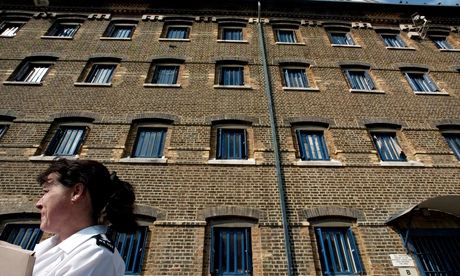 Wormwood Scrubs prison, west London. Photograph: Graham Turner for the Guardian
Wormwood Scrubs prison, west London. Photograph: Graham Turner for the Guardian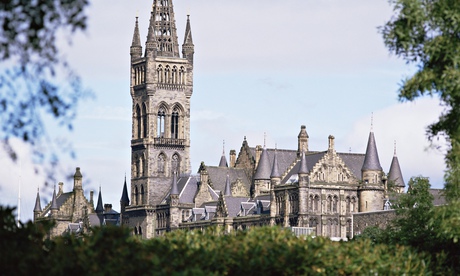 Glasgow University. Photograph: G Richardson/Robert Harding World Imagery/Corbis
Glasgow University. Photograph: G Richardson/Robert Harding World Imagery/Corbis




 Pressure point: Successive governments have increased the demands made of medical workers. Photograph: Andrew Matthews/PA
Pressure point: Successive governments have increased the demands made of medical workers. Photograph: Andrew Matthews/PA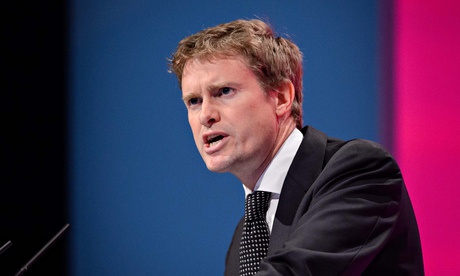 Tristram Hunt called the prime minister a ‘low-rent PR man’. Photograph: Leon Neal/AFP/Getty Images
Tristram Hunt called the prime minister a ‘low-rent PR man’. Photograph: Leon Neal/AFP/Getty Images




 ‘Even the Tories’ favourite economist, Adam Smith, denounced the size, nature and privileges associated with corporations, and we should heed what he said’. Photograph: Hulton Archive/Getty Images
‘Even the Tories’ favourite economist, Adam Smith, denounced the size, nature and privileges associated with corporations, and we should heed what he said’. Photograph: Hulton Archive/Getty Images Ed Miliband canvassing in the Heywood and Middleton byelection, with Liz McInnes, right. She later won the previously safe Labour seat but Ukip came a close second. Photograph: Christopher Thomond for The Guardian
Ed Miliband canvassing in the Heywood and Middleton byelection, with Liz McInnes, right. She later won the previously safe Labour seat but Ukip came a close second. Photograph: Christopher Thomond for The Guardian
 Palestinian children in Khan Yunis on the Gaza Strip place their national flag on the rubble of a building that was destroyed during this summer’s Israeli military offensive, which killed hundreds of civilians. Photograph: UPI/Landov/Barcroft Media
Palestinian children in Khan Yunis on the Gaza Strip place their national flag on the rubble of a building that was destroyed during this summer’s Israeli military offensive, which killed hundreds of civilians. Photograph: UPI/Landov/Barcroft Media






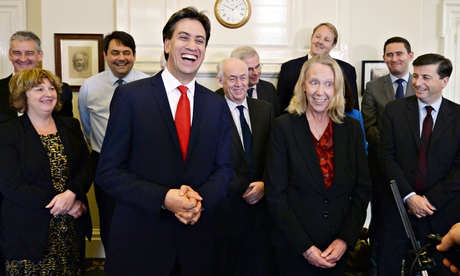 Labour party leader Ed Miliband welcomes newly elected MP for Heywood and Middleton Liz McInnes to the House of Commons after she narrowly beat the Ukip candidate in the byelection. Photograph: Stefan Rousseau/PA
Labour party leader Ed Miliband welcomes newly elected MP for Heywood and Middleton Liz McInnes to the House of Commons after she narrowly beat the Ukip candidate in the byelection. Photograph: Stefan Rousseau/PA Tuition fees at English universities tend to be compared with Ivy League schools such as Yale, above. Photograph: Alamy
Tuition fees at English universities tend to be compared with Ivy League schools such as Yale, above. Photograph: Alamy EDF’s Hinkley Point B nuclear power station. Photograph: Matt Cardy/Getty Images
EDF’s Hinkley Point B nuclear power station. Photograph: Matt Cardy/Getty Images Talking point: republican mural, Derry, 1989. Photograph: Peter Turnley/Corbis
Talking point: republican mural, Derry, 1989. Photograph: Peter Turnley/Corbis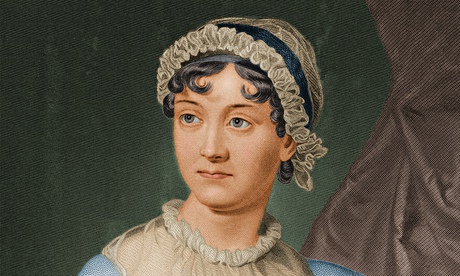 Jane Austen, above, wrote about bad mothers too. Photograph: Stock Montage/Getty Images
Jane Austen, above, wrote about bad mothers too. Photograph: Stock Montage/Getty Images



 Park Honan in the 1950s
Park Honan in the 1950s
 ‘Parents are told good teachers mark books regularly, teach inspirational lessons, set homework, analyse pupil data to inform teaching and keep their knowledge up to date … A conservative estimate of doing a good job means spending 70 hours per week.’ Photograph: fStop/Alamy
‘Parents are told good teachers mark books regularly, teach inspirational lessons, set homework, analyse pupil data to inform teaching and keep their knowledge up to date … A conservative estimate of doing a good job means spending 70 hours per week.’ Photograph: fStop/Alamy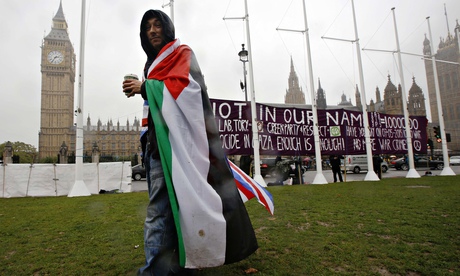 Show of support for recognition of a Palestinian state outside the Houses of Parliament, 13 October 2014. Photograph: Luke Macgregor/Reuters
Show of support for recognition of a Palestinian state outside the Houses of Parliament, 13 October 2014. Photograph: Luke Macgregor/Reuters Boris Johnson, who will be giving the opening keynote speech at the Mipim property fair in London, holds a house brick aloft as he addresses the Conservative party conference on 30 September 2014. Photograph: Peter Macdiarmid/Getty Images
Boris Johnson, who will be giving the opening keynote speech at the Mipim property fair in London, holds a house brick aloft as he addresses the Conservative party conference on 30 September 2014. Photograph: Peter Macdiarmid/Getty Images The route to secession? Photograph: Gary Kempston
The route to secession? Photograph: Gary Kempston






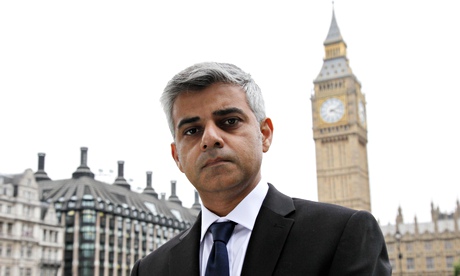 Sadiq Khan is the man charged with restoring Labour’s fortunes against the Green party in the opinion polls. Photograph: Jonathan Goldberg/Rex
Sadiq Khan is the man charged with restoring Labour’s fortunes against the Green party in the opinion polls. Photograph: Jonathan Goldberg/Rex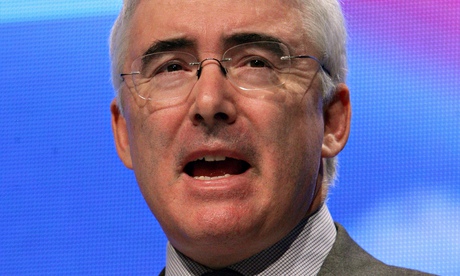 Welfare reform minister Lord Freud, who has suggested some disabled people are ‘not worth’ the full minimum wage. Photograph: Dave Thompson/PA
Welfare reform minister Lord Freud, who has suggested some disabled people are ‘not worth’ the full minimum wage. Photograph: Dave Thompson/PA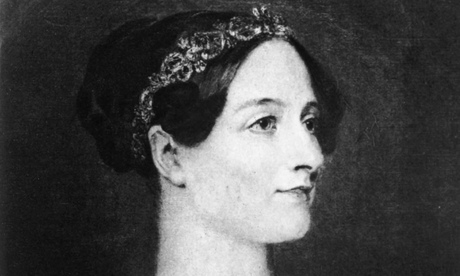 Ada Lovelace
Ada Lovelace Piped music pain … wire-cutters should do the trick. Photograph: Aagamia/Getty Images
Piped music pain … wire-cutters should do the trick. Photograph: Aagamia/Getty Images






 Welfare reform minister Lord Freud issued a ‘full and unreserved apology’ after suggesting that some disabled people are ‘not worth’ the minimum wage. Photograph: Dave Thompson/PA
Welfare reform minister Lord Freud issued a ‘full and unreserved apology’ after suggesting that some disabled people are ‘not worth’ the minimum wage. Photograph: Dave Thompson/PA
 Supporters of British recognition of a Palestinian state with a banner in Parliament Square. Photograph: Leon Neal/AFP
Supporters of British recognition of a Palestinian state with a banner in Parliament Square. Photograph: Leon Neal/AFP The Tokyo stock exchange. Photograph: Kimimasa Mayama/EPA
The Tokyo stock exchange. Photograph: Kimimasa Mayama/EPA Demonstrators come face to face with police at the Mipim property conference in London. Photograph: Richard Moffoot/Demotix/Corbis
Demonstrators come face to face with police at the Mipim property conference in London. Photograph: Richard Moffoot/Demotix/Corbis








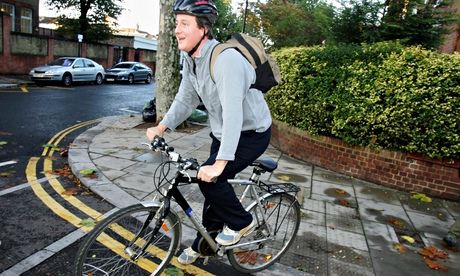
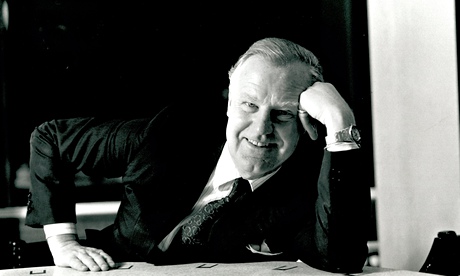






 The Napp building at the Cambridge Science Park
The Napp building at the Cambridge Science Park Trinity Great Court: Bradfield increased college revenue by 80 times
Trinity Great Court: Bradfield increased college revenue by 80 times King’s Cross station in its new glory. Photograph: Iain Masterton /Alamy
King’s Cross station in its new glory. Photograph: Iain Masterton /Alamy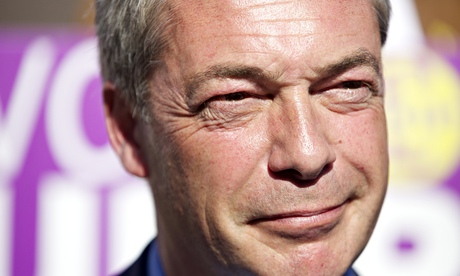 Nigel Farage’s party seems to some voters a viable alternative in their disenchantment with the mainstream parties. Photograph: Christopher Thomond for the Observer
Nigel Farage’s party seems to some voters a viable alternative in their disenchantment with the mainstream parties. Photograph: Christopher Thomond for the Observer




 SIR – Just when it appears that matters cannot get any worse, we are subject to the England captain telling us in the post-match press conference that “only Broads and Stokesie came out of the series with any credit”. I despair. Somebody should remind “Cookie” (pictured) that he is in charge of the national team, not the local pub team, and that in the current circumstances a little decorum is required.
SIR – Just when it appears that matters cannot get any worse, we are subject to the England captain telling us in the post-match press conference that “only Broads and Stokesie came out of the series with any credit”. I despair. Somebody should remind “Cookie” (pictured) that he is in charge of the national team, not the local pub team, and that in the current circumstances a little decorum is required. Eurovision winner Conchita Wurst of Austria (GETTY)
Eurovision winner Conchita Wurst of Austria (GETTY) SIR – With regards to the “conscious uncoupling” of Gwyneth (pictured) and Chris Martin, which poor soul is going to be lumbered with that CD collection?
SIR – With regards to the “conscious uncoupling” of Gwyneth (pictured) and Chris Martin, which poor soul is going to be lumbered with that CD collection?

 A healthcare worker speaks to children recovering from Ebola at a treatment centre in Freetown, Sierra Leone, 15 October 2014. Photograph: Michael Duff/AP
A healthcare worker speaks to children recovering from Ebola at a treatment centre in Freetown, Sierra Leone, 15 October 2014. Photograph: Michael Duff/AP Scotland’s hope? Gordon Brown. Photograph: Garry F Mcharg/PA
Scotland’s hope? Gordon Brown. Photograph: Garry F Mcharg/PA ‘I’m surprised male letter writers so outnumber females, as in your column I outpublish my husband. But I rush to the computer and dash off letters.’ Photograph: Martin Rogers/Getty
‘I’m surprised male letter writers so outnumber females, as in your column I outpublish my husband. But I rush to the computer and dash off letters.’ Photograph: Martin Rogers/Getty Like George Osborne dressed by Steve Bell? Aleander Wang x H&M catwalk show, 16 October 2014. Photograph: Thomas Concordia/WireImage
Like George Osborne dressed by Steve Bell? Aleander Wang x H&M catwalk show, 16 October 2014. Photograph: Thomas Concordia/WireImage




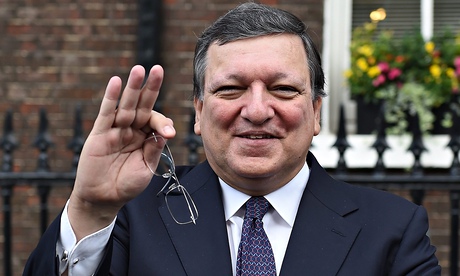 José Manuel Barroso in London, 20 Octobe 2014, to make the case for staying in the EU. Photograph: Andy Rain/EPA
José Manuel Barroso in London, 20 Octobe 2014, to make the case for staying in the EU. Photograph: Andy Rain/EPA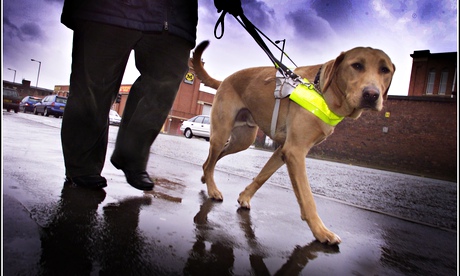 Allowed in Tesco: guide dogs. Photograph: Christopher Thomond for the Guardian
Allowed in Tesco: guide dogs. Photograph: Christopher Thomond for the Guardian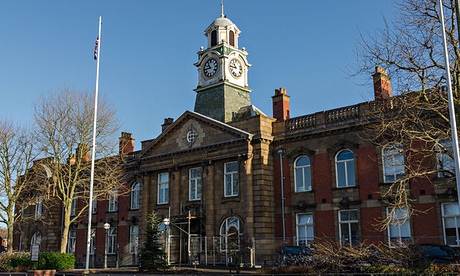 The Council House, Smethwick, West Midlands. Photograph: Alamy
The Council House, Smethwick, West Midlands. Photograph: Alamy Marrakesh, Morocco. Photograph: Alamy
Marrakesh, Morocco. Photograph: Alamy





 ‘While George Osborne scrabbles around the empty economic policies cupboard for pre-election sweeteners, it is time for everyone else to realise the patently obvious fact that you cannot have true economic growth if you keep reducing people’s pay.’ Photograph: Christopher Thomond for The Guardian
‘While George Osborne scrabbles around the empty economic policies cupboard for pre-election sweeteners, it is time for everyone else to realise the patently obvious fact that you cannot have true economic growth if you keep reducing people’s pay.’ Photograph: Christopher Thomond for The Guardian Gordon Strachan, Scotland’s head coach, in Warsaw, for the team’s European Championship qualifier against Poland, October 2014. Photograph: Adam Jagielak/Getty Images
Gordon Strachan, Scotland’s head coach, in Warsaw, for the team’s European Championship qualifier against Poland, October 2014. Photograph: Adam Jagielak/Getty Images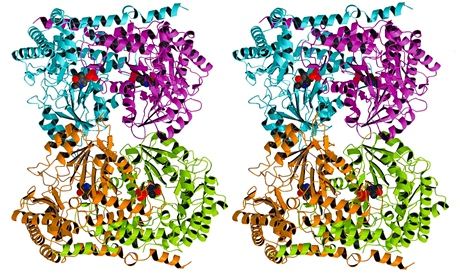 Stereoscopic image of an enzyme (serine hydroxymethyltransferase, SH) that is a potential target for anti-cancer drug development. The research work was carried out at The Institute of Cancer Research, University of London, and was published in the scientific journal Structure. Image: Dr Keith Snell
Stereoscopic image of an enzyme (serine hydroxymethyltransferase, SH) that is a potential target for anti-cancer drug development. The research work was carried out at The Institute of Cancer Research, University of London, and was published in the scientific journal Structure. Image: Dr Keith Snell Geographical isolation can make it hard to staff schools such as Clacton Coastal academy, above. Photograph: Sarah Lee for the Guardian
Geographical isolation can make it hard to staff schools such as Clacton Coastal academy, above. Photograph: Sarah Lee for the Guardian ‘If walking is excluded, swimming is the national sport for participation.’ Photograph: Alamy
‘If walking is excluded, swimming is the national sport for participation.’ Photograph: Alamy

 Dr Fadipe, a Nigerian doctor who was infected with the Ebola virus and survived, credits oral rehydration fluid for his recovery. On 20 October, the World Health Organization declared the country Ebola-free. Photograph: Andrew Esiebo/WHO/AP
Dr Fadipe, a Nigerian doctor who was infected with the Ebola virus and survived, credits oral rehydration fluid for his recovery. On 20 October, the World Health Organization declared the country Ebola-free. Photograph: Andrew Esiebo/WHO/AP In search of new ways forward. Photograph: Matt Kenyon
In search of new ways forward. Photograph: Matt Kenyon



